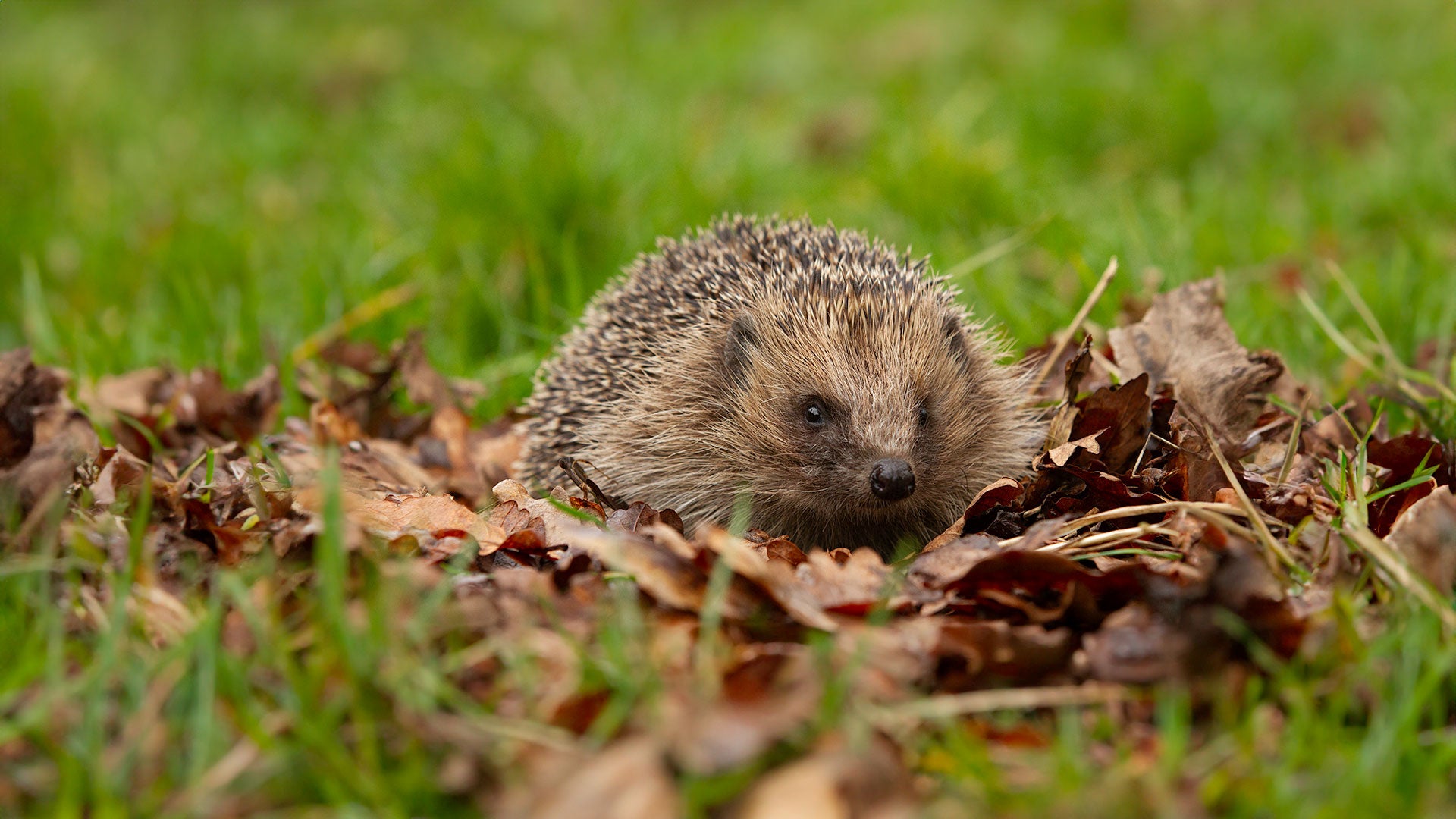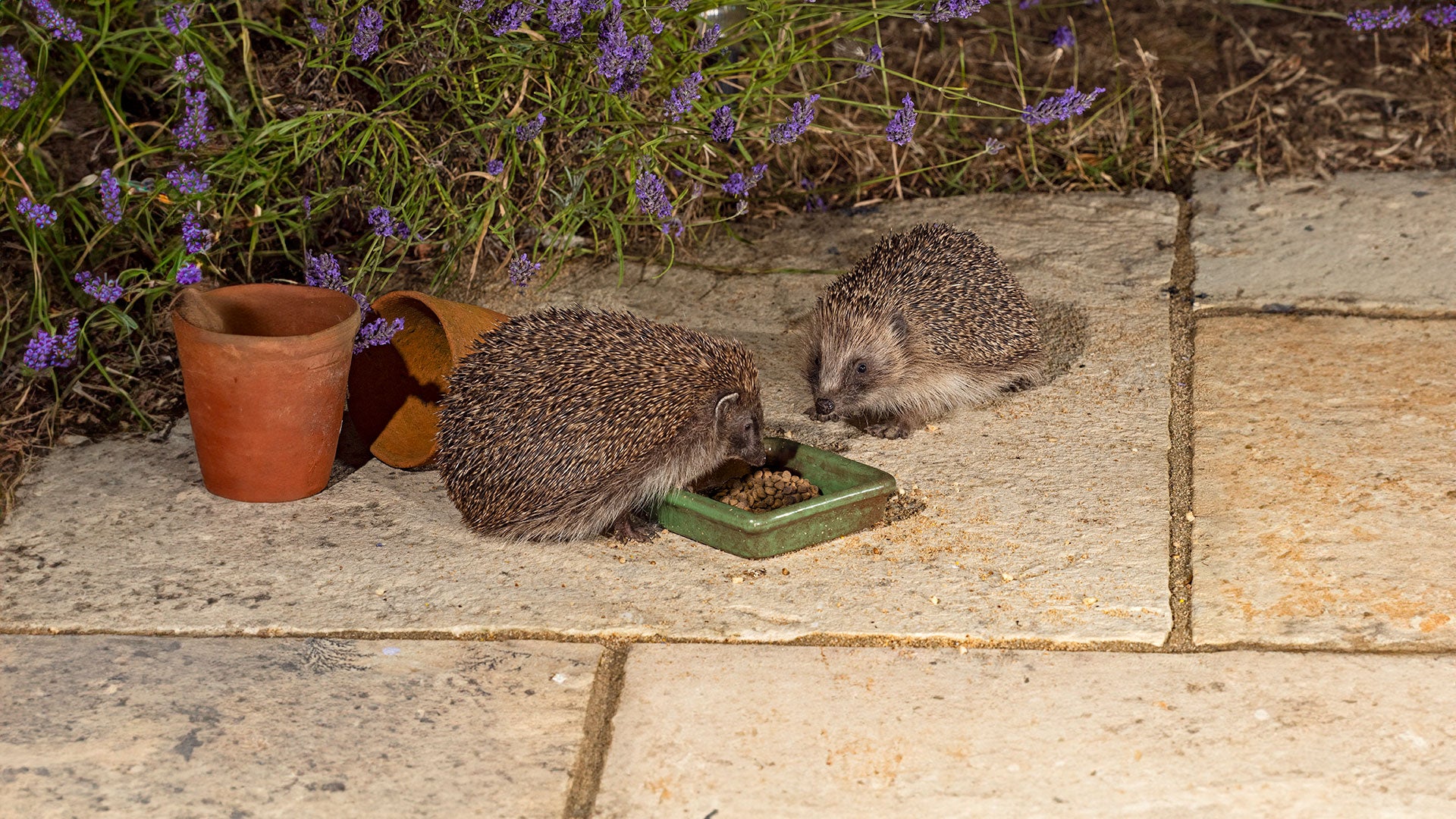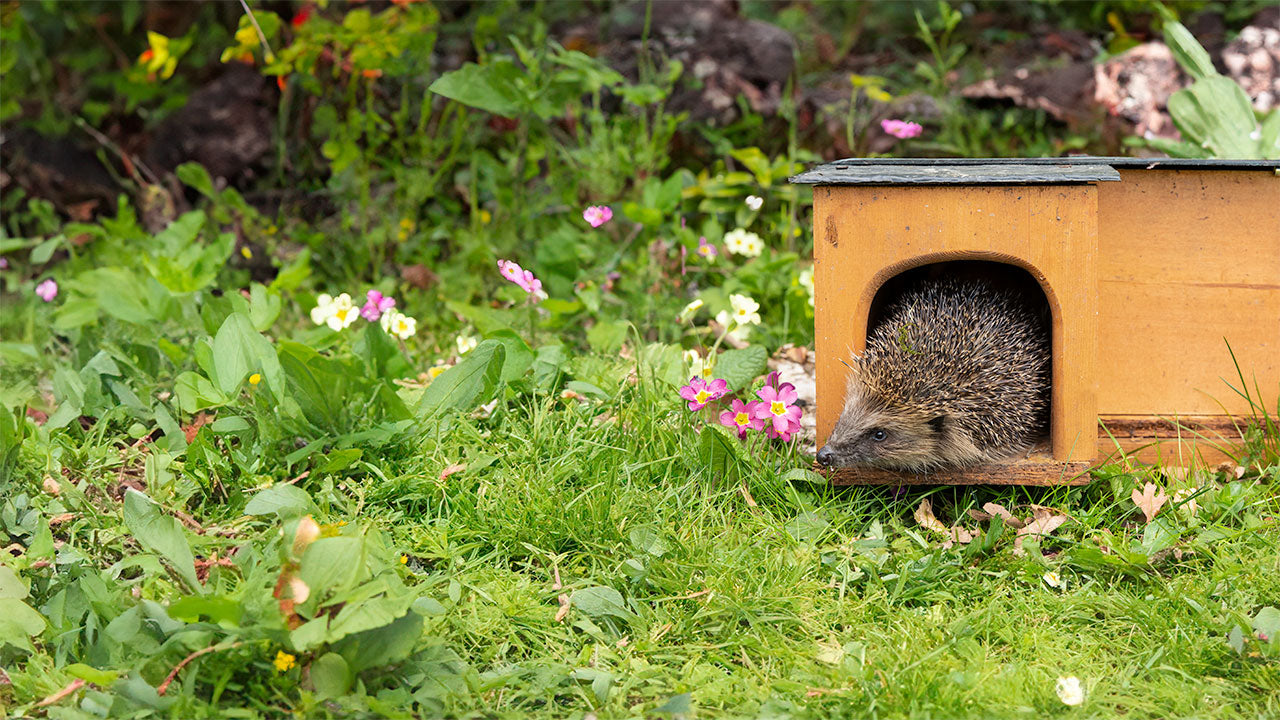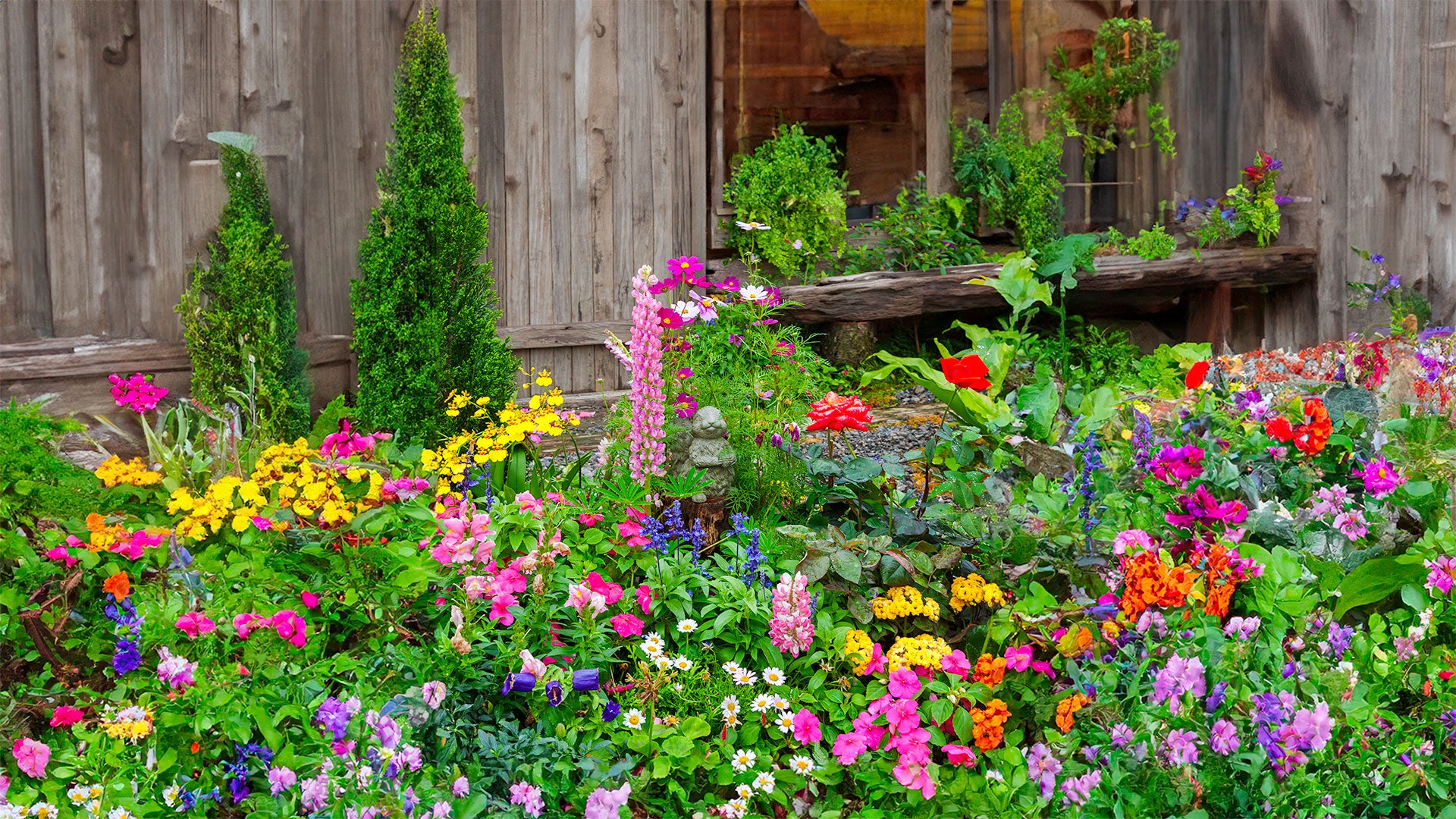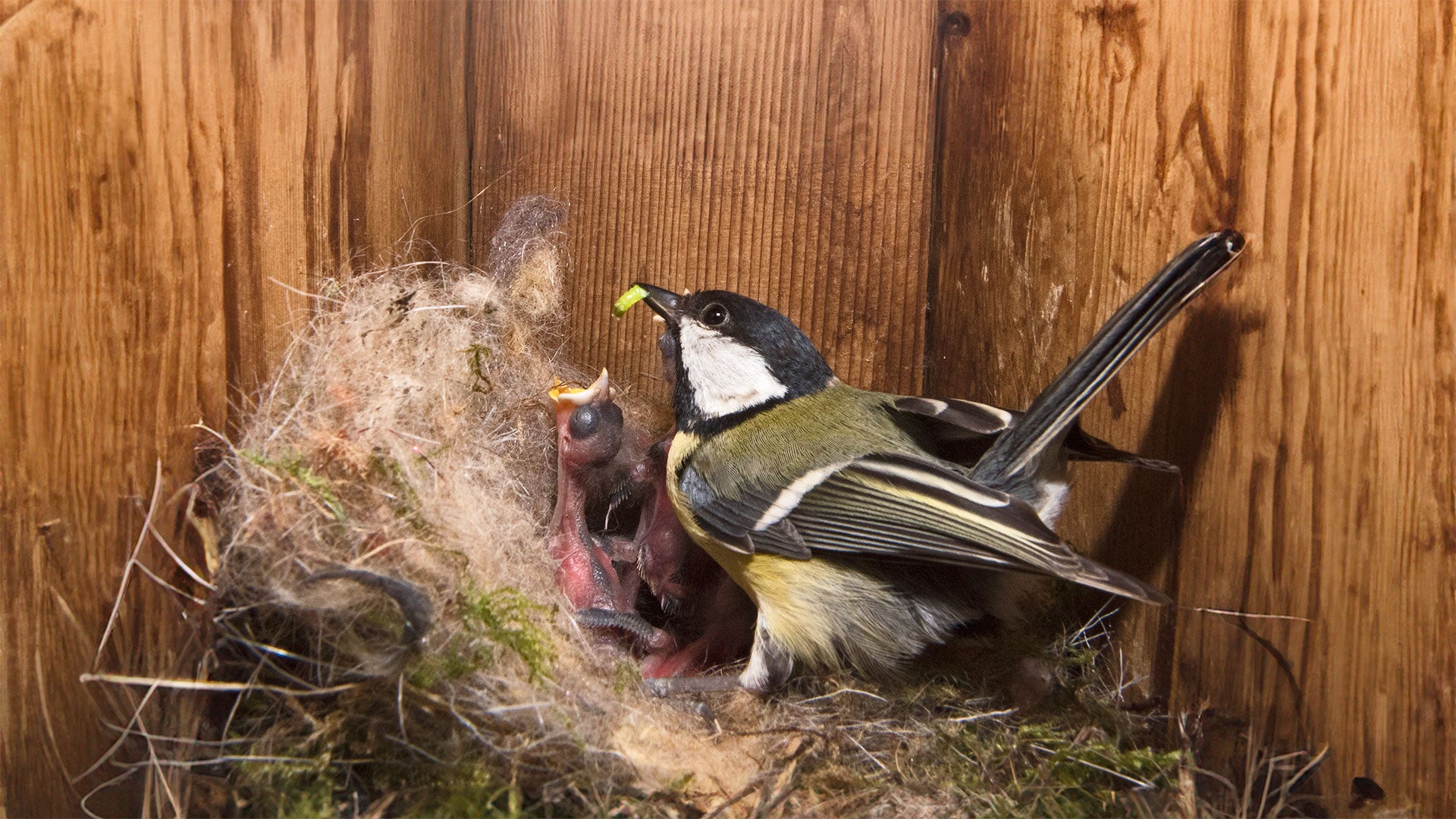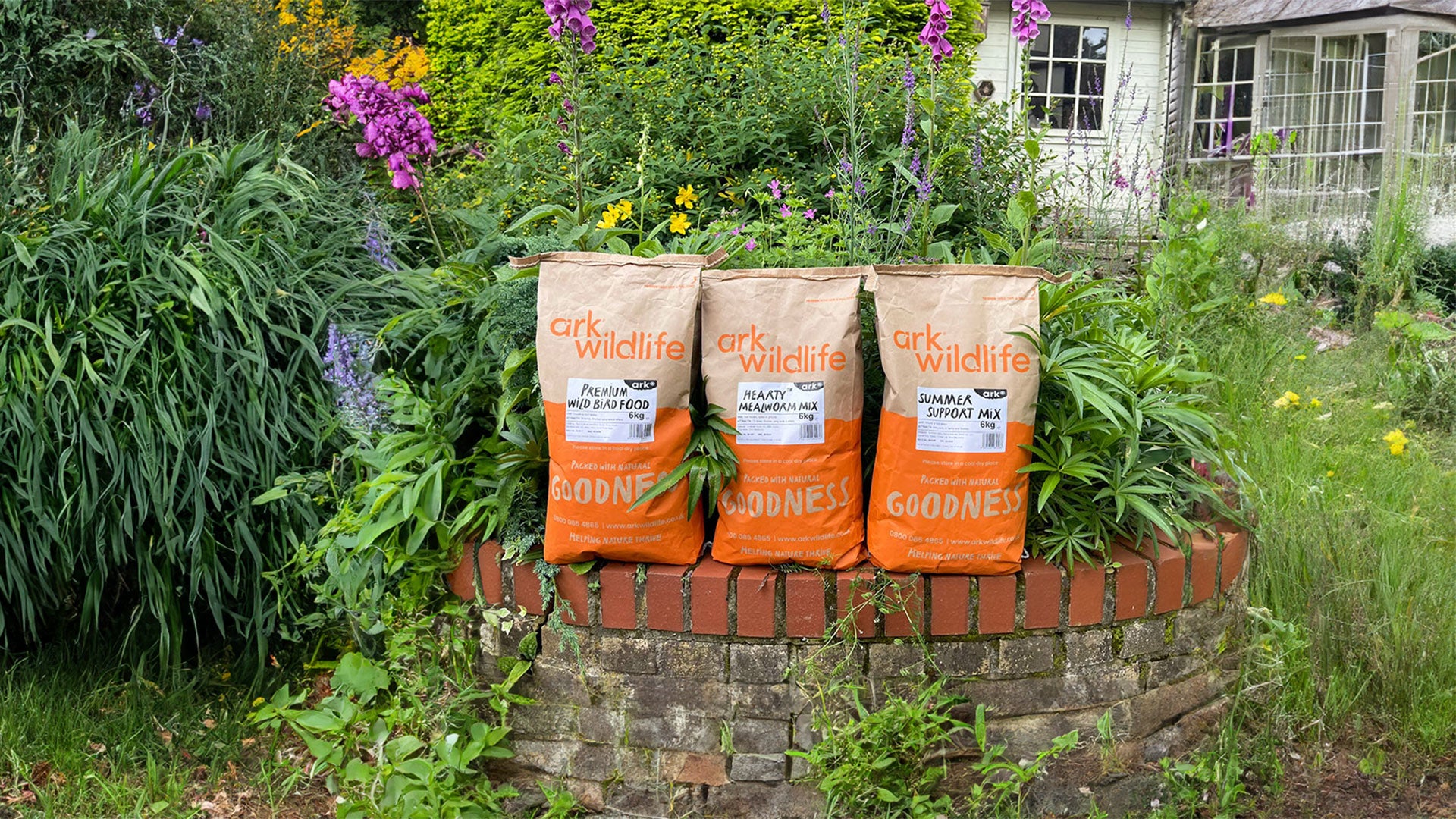Hedgehogs enjoy a natural diet of insects such as beetles, caterpillars, slugs, earthworms and snails, but sometimes food can be scarce, and we may want to help supplement their diets by putting out hedgehog food in our gardens.
In this guide, we will take you through the best food to give hedgehogs and run through frequently asked questions on the different types of foods to give to these charming creatures if they visit your garden.

Best food for hedgehogs
Want to know what you can feed a hedgehog in your garden? The best food for hedgehogs are:
- Specialist Ark Wildlife Hedgehog Food
- Meat-based dog food or cat food
- Cat biscuits
In recent years, feeding hedgehogs have become popular, and many pet food manufacturers have started selling their food labelled as suitable for hedgehogs. Many of these are simply cat, dog, and even ferret food repackaged. Hedgehogs are not even distantly related to any of these species and have a very different anatomy and metabolism. Seek out a hedgehog food formulated specifically for hedgehogs, such as Ark Hedgehog Food Original, to ensure optimal health. You can place this food in our hedgehog feeding station.
If you want to feed a wild hedgehog, avoid sugary food that can be bad for their teeth. Also, avoid food that is high in phosphorus, which can cause issues such as metabolic bone disease, this includes peanuts, mealworms and sunflower seeds.
Here, we’ll go over the common questions about what to feed hedgehogs, what is safe to feed hedgehogs and what should be avoided.
Do hedgehogs eat bird seed and sunflower seeds?
Hedgehogs are often first seen in gardens eating spilt bird food under feeders. They will be eating the seeds, as well as all the insects and invertebrates that gather there. Small quantities of seeds and nuts are not harmful to hedgehogs but can cause issues if eaten to excess. See our article on hedgehog metabolic bone disease for more information.
Can hedgehogs eat fish?
This question generally relates to fish-based cat food. Fish protein is beneficial, and therefore, within a balanced, cat or dog food is fine for hedgehogs. Hedgehogs have an excellent sense of smell and may be put off by (or attracted to) strong odours, and fish, of course, have a strong odour. Consumption of a lot of fish protein will travel through a hedgehog’s digestive tract very quickly, resulting in fishy-smelling hedgehog poo. This was once thought to be proof hedgehogs couldn’t digest fish, but this has long since been shown to be untrue.
Can hedgehogs eat dry dog food?
Dogs are omnivorous carnivores, whereas cats are pure carnivores. Dog food tends to have more ingredients than cat food, along with lower levels of protein, vitamins, and minerals. As such, dog food may be preferable to cat food when feeding hedgehogs (omnivorous insectivores) due to the closer digestive anatomy of the two species.
Can hedgehogs drink milk?
No, hedgehogs should not drink milk. The suitable food list for hedgehogs excludes milk and dairy products. Hedgehogs are, in fact, lactose intolerant. Although not poisonous, the lactose in the milk can give them digestive upset and make them feel poorly. Leave out a shallow dish of clean tap water instead.
What fruits can hedgehogs eat?
Fruit is rarely sought by hedgehogs. Fruit is occasionally consumed but does not make up any substantial part of their diet. So, if you’re wondering - can hedgehogs eat bananas? Yes, they can, but they would much rather eat a tasty beetle or slug.
Can hedgehogs eat carrots?
Hedgehogs do not generally feed on any vegetable matter but do ingest some greens incidentally while feeding on worms and other invertebrates. They do not make a nutritional contribution and do not need to be provided.

Can I feed hedgehogs kitten biscuits?
Cat food or kitten biscuits should ideally be low in fat and high in protein and should be given to hedgehogs in small portions. Specialist hedgehog food is much more suited to their nutritional needs and should be opted for as a first choice.
When should I feed wild hedgehogs?
Food can be left out for hedgehogs all year round, with hedgehogs needing food following hibernation in springtime and summer and autumn being a time for hedgehogs to boost fat stores to survive the winter. Even when hedgehogs are hibernating, their deep sleep might not be constant. They may wake up in search of food before going back to sleep. If the weather is particularly hot and dry, their natural food sources may be trickier for them to locate, so it’s a great time to supplement their supply by leaving hedgehog food out in your garden.
When it comes to timings, it’s best to put out food just after dusk when they are up and about beginning their foraging for food during the night.
Where should I put food for hedgehogs?

If you want to put food out for hedgehogs in your garden, you should start by ensuring your garden is accessible to these friendly pest controllers. A hedgehog hole is a great way to do this.
Food should be left in a sheltered spot in the garden, ideally in a feeding station, so hedgehogs can enjoy the food without it being taken by birds, foxes or cats. Fill with a small amount of hedgehog-friendly food and water in shallow containers. To keep things fresh, clear away anything that’s not been eaten in the morning and refill in the evening. Always wash hands after touching any food or containers as hedgehogs can spread diseases.
Want to learn more about what foods hedgehogs eat in the wild? Or how to make a hedgehog-friendly garden? Take a look at our guides that answer your common questions and help spread the word about keeping hedgehogs safe and protected.
– Ark Wildlife continue to research hedgehog wellbeing and dietary health and are currently carrying out trials on new ways of providing highly palatable balanced nutrition with improved digestibility -
We are pleased to offer you a copy of Vale Wildlife Hospital’s advice sheets for feeding hedgehogs in your garden. They are one of the UK’s largest wildlife hospitals and hedgehog rescue centres. We therefore follow their guidance regarding hedgehog care as appropriate.




